Software
Services
Consulting
Training
On-Premise
Cloud-Based
Hybrid
Healthcare Providers
Payers
Government
Chronic Disease Management
Care Coordination
Patient Engagement
North America
Europe
South America
Asia Pacific
Middle East and Africa
North America Outlook (USD Billion, 2019-2035)
North America Care Management Solutions Market by Solution Type
Software
Services
Consulting
Training
North America Care Management Solutions Market by Deployment Model Type
On-Premise
Cloud-Based
Hybrid
North America Care Management Solutions Market by End User Type
Healthcare Providers
Payers
Government
North America Care Management Solutions Market by Application Type
Chronic Disease Management
Care Coordination
Patient Engagement
North America Care Management Solutions Market by Regional Type
US
Canada
US Outlook (USD Billion, 2019-2035)
US Care Management Solutions Market by Solution Type
Software
Services
Consulting
Training
US Care Management Solutions Market by Deployment Model Type
On-Premise
Cloud-Based
Hybrid
US Care Management Solutions Market by End User Type
Healthcare Providers
Payers
Government
US Care Management Solutions Market by Application Type
Chronic Disease Management
Care Coordination
Patient Engagement
CANADA Outlook (USD Billion, 2019-2035)
CANADA Care Management Solutions Market by Solution Type
Software
Services
Consulting
Training
CANADA Care Management Solutions Market by Deployment Model Type
On-Premise
Cloud-Based
Hybrid
CANADA Care Management Solutions Market by End User Type
Healthcare Providers
Payers
Government
CANADA Care Management Solutions Market by Application Type
Chronic Disease Management
Care Coordination
Patient Engagement
Europe Outlook (USD Billion, 2019-2035)
Europe Care Management Solutions Market by Solution Type
Software
Services
Consulting
Training
Europe Care Management Solutions Market by Deployment Model Type
On-Premise
Cloud-Based
Hybrid
Europe Care Management Solutions Market by End User Type
Healthcare Providers
Payers
Government
Europe Care Management Solutions Market by Application Type
Chronic Disease Management
Care Coordination
Patient Engagement
Europe Care Management Solutions Market by Regional Type
Germany
UK
France
Russia
Italy
Spain
Rest of Europe
GERMANY Outlook (USD Billion, 2019-2035)
GERMANY Care Management Solutions Market by Solution Type
Software
Services
Consulting
Training
GERMANY Care Management Solutions Market by Deployment Model Type
On-Premise
Cloud-Based
Hybrid
GERMANY Care Management Solutions Market by End User Type
Healthcare Providers
Payers
Government
GERMANY Care Management Solutions Market by Application Type
Chronic Disease Management
Care Coordination
Patient Engagement
UK Outlook (USD Billion, 2019-2035)
UK Care Management Solutions Market by Solution Type
Software
Services
Consulting
Training
UK Care Management Solutions Market by Deployment Model Type
On-Premise
Cloud-Based
Hybrid
UK Care Management Solutions Market by End User Type
Healthcare Providers
Payers
Government
UK Care Management Solutions Market by Application Type
Chronic Disease Management
Care Coordination
Patient Engagement
FRANCE Outlook (USD Billion, 2019-2035)
FRANCE Care Management Solutions Market by Solution Type
Software
Services
Consulting
Training
FRANCE Care Management Solutions Market by Deployment Model Type
On-Premise
Cloud-Based
Hybrid
FRANCE Care Management Solutions Market by End User Type
Healthcare Providers
Payers
Government
FRANCE Care Management Solutions Market by Application Type
Chronic Disease Management
Care Coordination
Patient Engagement
RUSSIA Outlook (USD Billion, 2019-2035)
RUSSIA Care Management Solutions Market by Solution Type
Software
Services
Consulting
Training
RUSSIA Care Management Solutions Market by Deployment Model Type
On-Premise
Cloud-Based
Hybrid
RUSSIA Care Management Solutions Market by End User Type
Healthcare Providers
Payers
Government
RUSSIA Care Management Solutions Market by Application Type
Chronic Disease Management
Care Coordination
Patient Engagement
ITALY Outlook (USD Billion, 2019-2035)
ITALY Care Management Solutions Market by Solution Type
Software
Services
Consulting
Training
ITALY Care Management Solutions Market by Deployment Model Type
On-Premise
Cloud-Based
Hybrid
ITALY Care Management Solutions Market by End User Type
Healthcare Providers
Payers
Government
ITALY Care Management Solutions Market by Application Type
Chronic Disease Management
Care Coordination
Patient Engagement
SPAIN Outlook (USD Billion, 2019-2035)
SPAIN Care Management Solutions Market by Solution Type
Software
Services
Consulting
Training
SPAIN Care Management Solutions Market by Deployment Model Type
On-Premise
Cloud-Based
Hybrid
SPAIN Care Management Solutions Market by End User Type
Healthcare Providers
Payers
Government
SPAIN Care Management Solutions Market by Application Type
Chronic Disease Management
Care Coordination
Patient Engagement
REST OF EUROPE Outlook (USD Billion, 2019-2035)
REST OF EUROPE Care Management Solutions Market by Solution Type
Software
Services
Consulting
Training
REST OF EUROPE Care Management Solutions Market by Deployment Model Type
On-Premise
Cloud-Based
Hybrid
REST OF EUROPE Care Management Solutions Market by End User Type
Healthcare Providers
Payers
Government
REST OF EUROPE Care Management Solutions Market by Application Type
Chronic Disease Management
Care Coordination
Patient Engagement
APAC Outlook (USD Billion, 2019-2035)
APAC Care Management Solutions Market by Solution Type
Software
Services
Consulting
Training
APAC Care Management Solutions Market by Deployment Model Type
On-Premise
Cloud-Based
Hybrid
APAC Care Management Solutions Market by End User Type
Healthcare Providers
Payers
Government
APAC Care Management Solutions Market by Application Type
Chronic Disease Management
Care Coordination
Patient Engagement
APAC Care Management Solutions Market by Regional Type
China
India
Japan
South Korea
Malaysia
Thailand
Indonesia
Rest of APAC
CHINA Outlook (USD Billion, 2019-2035)
CHINA Care Management Solutions Market by Solution Type
Software
Services
Consulting
Training
CHINA Care Management Solutions Market by Deployment Model Type
On-Premise
Cloud-Based
Hybrid
CHINA Care Management Solutions Market by End User Type
Healthcare Providers
Payers
Government
CHINA Care Management Solutions Market by Application Type
Chronic Disease Management
Care Coordination
Patient Engagement
INDIA Outlook (USD Billion, 2019-2035)
INDIA Care Management Solutions Market by Solution Type
Software
Services
Consulting
Training
INDIA Care Management Solutions Market by Deployment Model Type
On-Premise
Cloud-Based
Hybrid
INDIA Care Management Solutions Market by End User Type
Healthcare Providers
Payers
Government
INDIA Care Management Solutions Market by Application Type
Chronic Disease Management
Care Coordination
Patient Engagement
JAPAN Outlook (USD Billion, 2019-2035)
JAPAN Care Management Solutions Market by Solution Type
Software
Services
Consulting
Training
JAPAN Care Management Solutions Market by Deployment Model Type
On-Premise
Cloud-Based
Hybrid
JAPAN Care Management Solutions Market by End User Type
Healthcare Providers
Payers
Government
JAPAN Care Management Solutions Market by Application Type
Chronic Disease Management
Care Coordination
Patient Engagement
SOUTH KOREA Outlook (USD Billion, 2019-2035)
SOUTH KOREA Care Management Solutions Market by Solution Type
Software
Services
Consulting
Training
SOUTH KOREA Care Management Solutions Market by Deployment Model Type
On-Premise
Cloud-Based
Hybrid
SOUTH KOREA Care Management Solutions Market by End User Type
Healthcare Providers
Payers
Government
SOUTH KOREA Care Management Solutions Market by Application Type
Chronic Disease Management
Care Coordination
Patient Engagement
MALAYSIA Outlook (USD Billion, 2019-2035)
MALAYSIA Care Management Solutions Market by Solution Type
Software
Services
Consulting
Training
MALAYSIA Care Management Solutions Market by Deployment Model Type
On-Premise
Cloud-Based
Hybrid
MALAYSIA Care Management Solutions Market by End User Type
Healthcare Providers
Payers
Government
MALAYSIA Care Management Solutions Market by Application Type
Chronic Disease Management
Care Coordination
Patient Engagement
THAILAND Outlook (USD Billion, 2019-2035)
THAILAND Care Management Solutions Market by Solution Type
Software
Services
Consulting
Training
THAILAND Care Management Solutions Market by Deployment Model Type
On-Premise
Cloud-Based
Hybrid
THAILAND Care Management Solutions Market by End User Type
Healthcare Providers
Payers
Government
THAILAND Care Management Solutions Market by Application Type
Chronic Disease Management
Care Coordination
Patient Engagement
INDONESIA Outlook (USD Billion, 2019-2035)
INDONESIA Care Management Solutions Market by Solution Type
Software
Services
Consulting
Training
INDONESIA Care Management Solutions Market by Deployment Model Type
On-Premise
Cloud-Based
Hybrid
INDONESIA Care Management Solutions Market by End User Type
Healthcare Providers
Payers
Government
INDONESIA Care Management Solutions Market by Application Type
Chronic Disease Management
Care Coordination
Patient Engagement
REST OF APAC Outlook (USD Billion, 2019-2035)
REST OF APAC Care Management Solutions Market by Solution Type
Software
Services
Consulting
Training
REST OF APAC Care Management Solutions Market by Deployment Model Type
On-Premise
Cloud-Based
Hybrid
REST OF APAC Care Management Solutions Market by End User Type
Healthcare Providers
Payers
Government
REST OF APAC Care Management Solutions Market by Application Type
Chronic Disease Management
Care Coordination
Patient Engagement
South America Outlook (USD Billion, 2019-2035)
South America Care Management Solutions Market by Solution Type
Software
Services
Consulting
Training
South America Care Management Solutions Market by Deployment Model Type
On-Premise
Cloud-Based
Hybrid
South America Care Management Solutions Market by End User Type
Healthcare Providers
Payers
Government
South America Care Management Solutions Market by Application Type
Chronic Disease Management
Care Coordination
Patient Engagement
South America Care Management Solutions Market by Regional Type
Brazil
Mexico
Argentina
Rest of South America
BRAZIL Outlook (USD Billion, 2019-2035)
BRAZIL Care Management Solutions Market by Solution Type
Software
Services
Consulting
Training
BRAZIL Care Management Solutions Market by Deployment Model Type
On-Premise
Cloud-Based
Hybrid
BRAZIL Care Management Solutions Market by End User Type
Healthcare Providers
Payers
Government
BRAZIL Care Management Solutions Market by Application Type
Chronic Disease Management
Care Coordination
Patient Engagement
MEXICO Outlook (USD Billion, 2019-2035)
MEXICO Care Management Solutions Market by Solution Type
Software
Services
Consulting
Training
MEXICO Care Management Solutions Market by Deployment Model Type
On-Premise
Cloud-Based
Hybrid
MEXICO Care Management Solutions Market by End User Type
Healthcare Providers
Payers
Government
MEXICO Care Management Solutions Market by Application Type
Chronic Disease Management
Care Coordination
Patient Engagement
ARGENTINA Outlook (USD Billion, 2019-2035)
ARGENTINA Care Management Solutions Market by Solution Type
Software
Services
Consulting
Training
ARGENTINA Care Management Solutions Market by Deployment Model Type
On-Premise
Cloud-Based
Hybrid
ARGENTINA Care Management Solutions Market by End User Type
Healthcare Providers
Payers
Government
ARGENTINA Care Management Solutions Market by Application Type
Chronic Disease Management
Care Coordination
Patient Engagement
REST OF SOUTH AMERICA Outlook (USD Billion, 2019-2035)
REST OF SOUTH AMERICA Care Management Solutions Market by Solution Type
Software
Services
Consulting
Training
REST OF SOUTH AMERICA Care Management Solutions Market by Deployment Model Type
On-Premise
Cloud-Based
Hybrid
REST OF SOUTH AMERICA Care Management Solutions Market by End User Type
Healthcare Providers
Payers
Government
REST OF SOUTH AMERICA Care Management Solutions Market by Application Type
Chronic Disease Management
Care Coordination
Patient Engagement
MEA Outlook (USD Billion, 2019-2035)
MEA Care Management Solutions Market by Solution Type
Software
Services
Consulting
Training
MEA Care Management Solutions Market by Deployment Model Type
On-Premise
Cloud-Based
Hybrid
MEA Care Management Solutions Market by End User Type
Healthcare Providers
Payers
Government
MEA Care Management Solutions Market by Application Type
Chronic Disease Management
Care Coordination
Patient Engagement
MEA Care Management Solutions Market by Regional Type
GCC Countries
South Africa
Rest of MEA
GCC COUNTRIES Outlook (USD Billion, 2019-2035)
GCC COUNTRIES Care Management Solutions Market by Solution Type
Software
Services
Consulting
Training
GCC COUNTRIES Care Management Solutions Market by Deployment Model Type
On-Premise
Cloud-Based
Hybrid
GCC COUNTRIES Care Management Solutions Market by End User Type
Healthcare Providers
Payers
Government
GCC COUNTRIES Care Management Solutions Market by Application Type
Chronic Disease Management
Care Coordination
Patient Engagement
SOUTH AFRICA Outlook (USD Billion, 2019-2035)
SOUTH AFRICA Care Management Solutions Market by Solution Type
Software
Services
Consulting
Training
SOUTH AFRICA Care Management Solutions Market by Deployment Model Type
On-Premise
Cloud-Based
Hybrid
SOUTH AFRICA Care Management Solutions Market by End User Type
Healthcare Providers
Payers
Government
SOUTH AFRICA Care Management Solutions Market by Application Type
Chronic Disease Management
Care Coordination
Patient Engagement
REST OF MEA Outlook (USD Billion, 2019-2035)
REST OF MEA Care Management Solutions Market by Solution Type
Software
Services
Consulting
Training
REST OF MEA Care Management Solutions Market by Deployment Model Type
On-Premise
Cloud-Based
Hybrid
REST OF MEA Care Management Solutions Market by End User Type
Healthcare Providers
Payers
Government
REST OF MEA Care Management Solutions Market by Application Type
Chronic Disease Management
Care Coordination
Patient Engagement
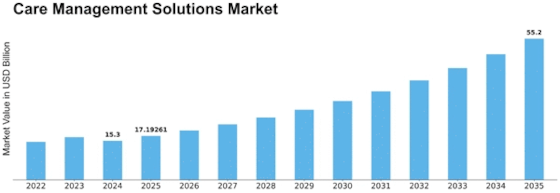


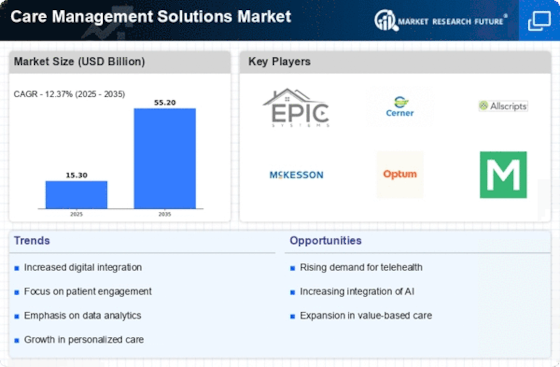


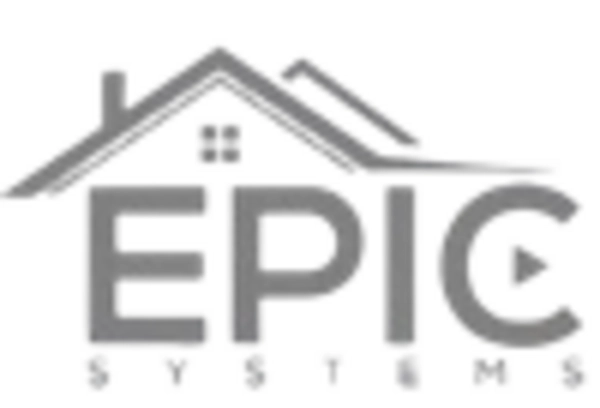

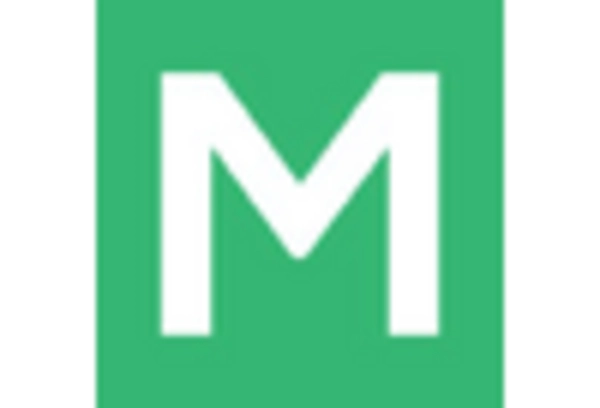
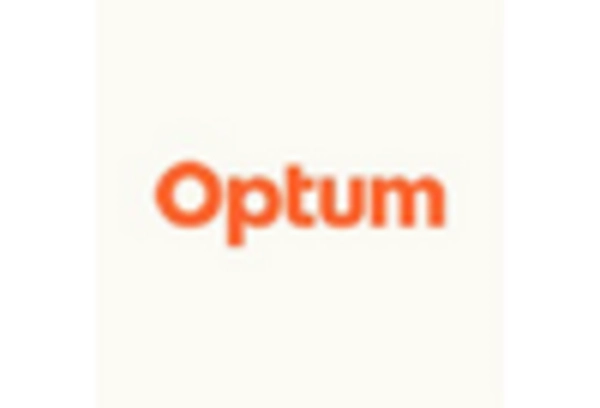









Leave a Comment